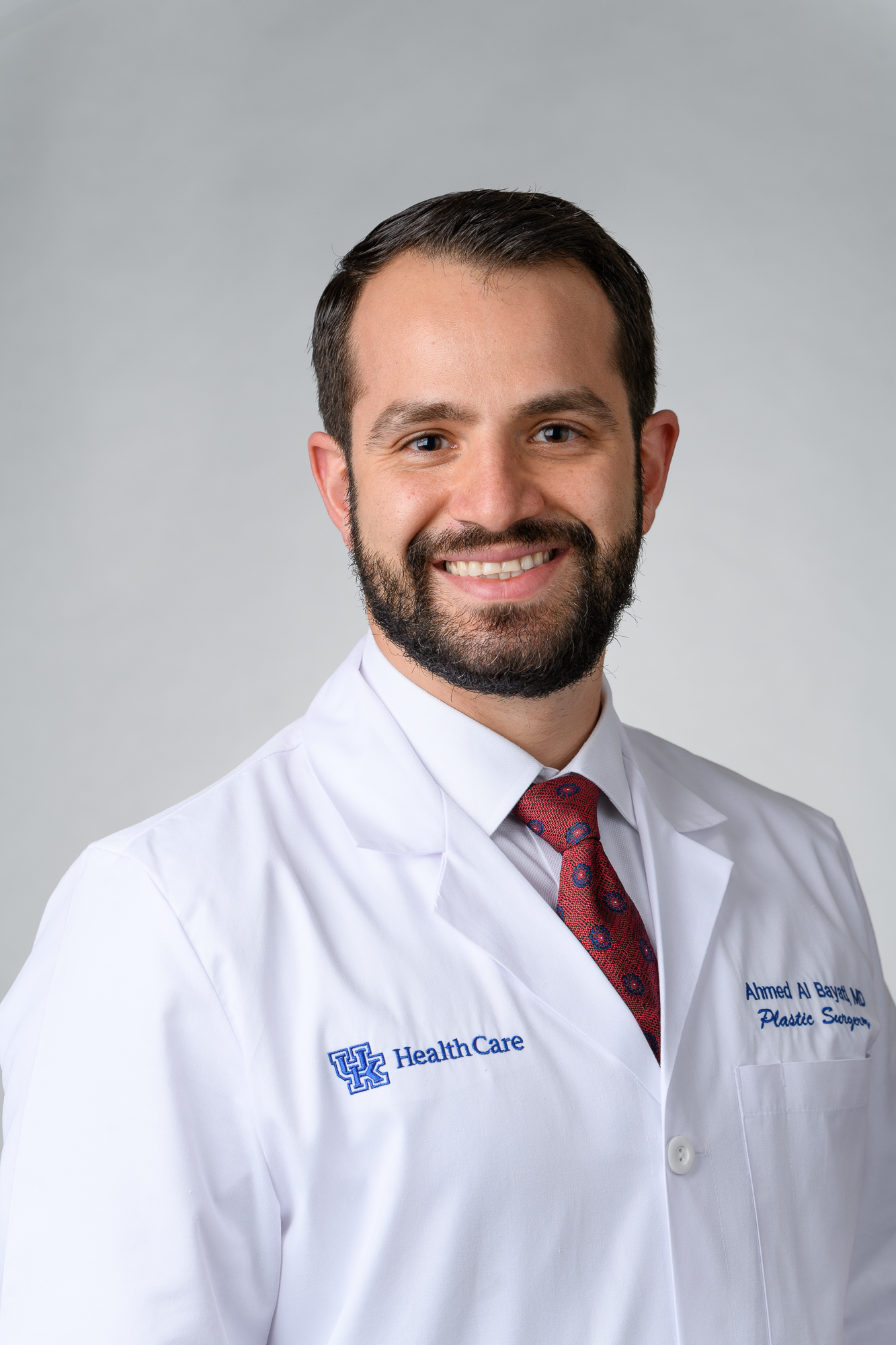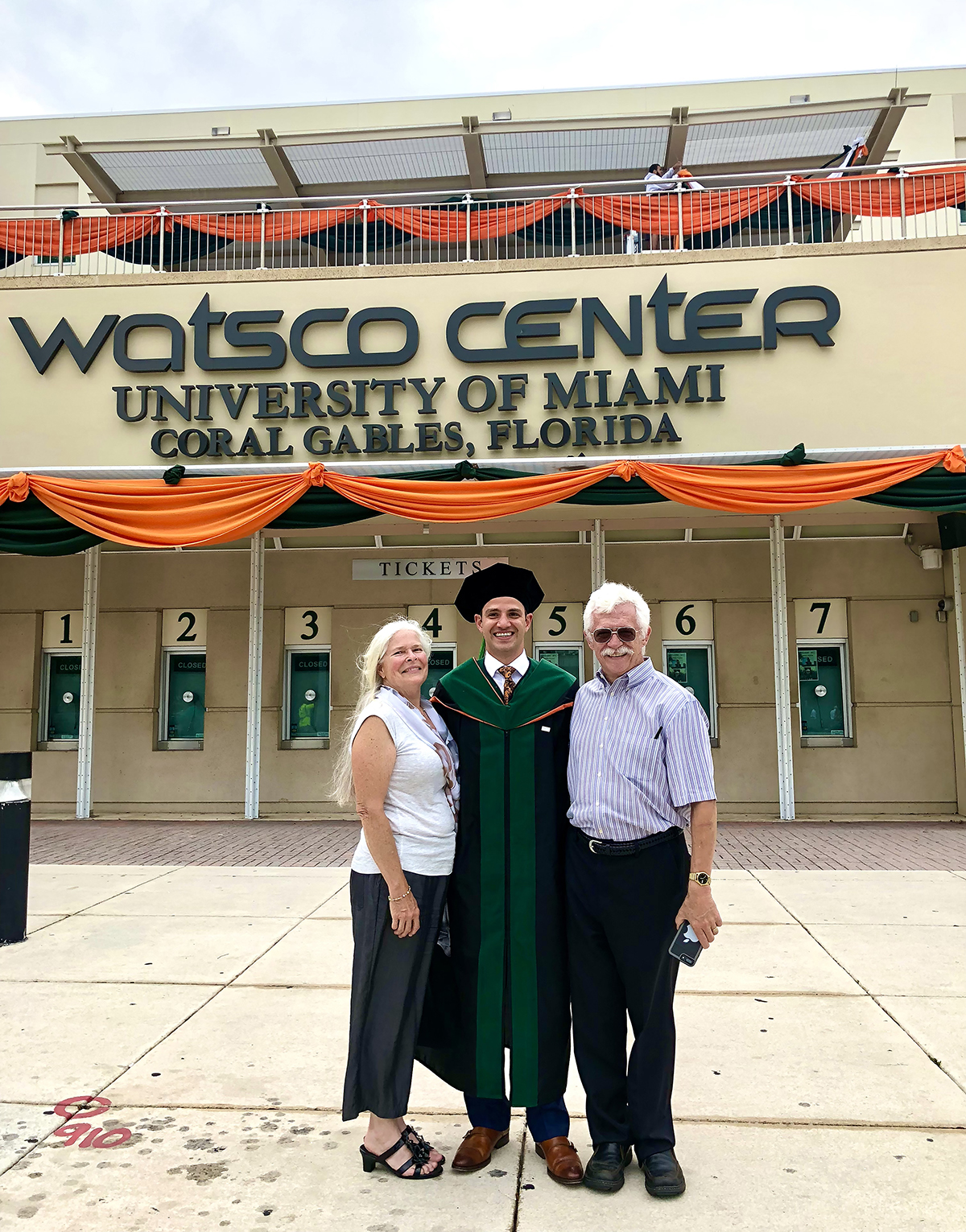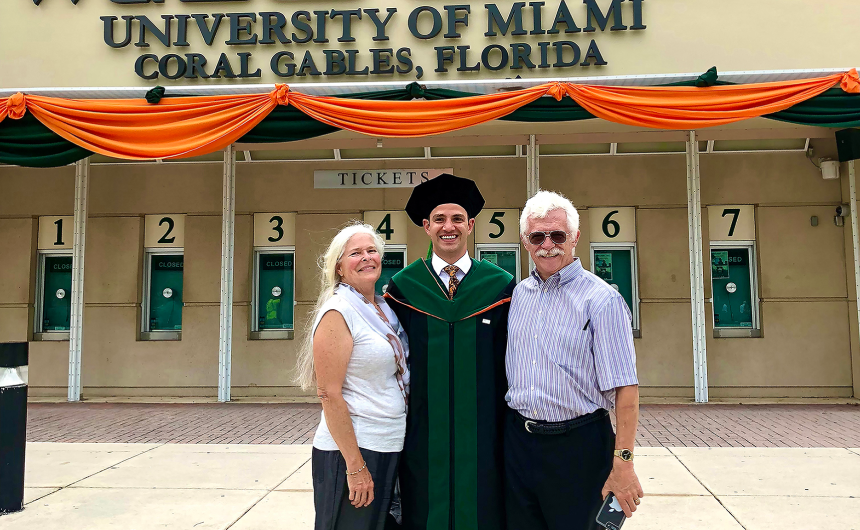Mentorship helps lead alumnus to medical school and beyond
D r. Ahmed Al-Bayati, ’12, has come a long way from growing up in war-torn Baghdad where he served as a translator to reaching the peak of his education as a medical school graduate and soon will be wrapping up his surgical residency.

His journey began in Baghdad when he was a teenager. At that time, very few town people knew English, but Al-Bayati did. So, he became a local translator for the U.S. Army stationed in Baghdad during the war. A few years later the war escalated; his uncle and cousin were killed.
“People eventually came after me because I was labeled as a traitor,” said Al-Bayati. “My whole family had to escape.”
The family then moved to Dubai where Al-Bayati finished his first year of undergraduate medical school. He knew he wanted to do a surgical residency, but spaces for surgery were limited to United Arab Emirates citizens. So, Al-Bayati returned to Baghdad where he worked at a U.S. compound hospital in the barracks.
“It was quite gruesome,” he said. “The type of trauma we treated were the results of explosions, burns, assassinations and gun shots. This motivated me even more to become a surgeon, because I want to be one of those people who fix these types of problems.”
He applied for a visa to further his education, and chose to attend Georgia College & State University, which provided him with an international student scholarship.
“The premedical mentoring program at Georgia College was one of the most important steppingstones to my career in medicine,” said Al-Bayati. “I knew I had to eventually apply to medical school.”
Through the mentorship program, he was exposed to what being in medical school entailed.
“That was a real eye-opener for me, because Dr. Ken Saladin designed this program to familiarize us with as much as physically possible,” said Al-Bayati. “He informed us what to anticipate and what the requirements were for the medical school application process. He also told us what our lives are going to look like in the next 20 to 30 years.”
Al-Bayati took comfort in knowing fellow students were in the same situation as him.
“Being around others who were applying to medical school was very helpful, because we could provide feedback to each other,” he said. “Dr. Saladin also helped us with his referral letters and made sure we had our personal statement before we applied.”
Saladin went one step further by helping him land a research internship at the University of Miami. Al-Bayati moved there to do cancer research for three years.
“He connected me to a physician with a cancer research lab,” he said. “So, I moved to Miami with the hopes of helping this person in the lab. I familiarized myself with the lab and really took to it like a fish to water.”
Then, Al-Bayati got accepted to medical school at the University of Miami with a focus on cancer research. While going to medical school, he remained involved in his research projects.
This mentorship came full-circle May 12, 2018, as Al-Bayati walked across the stage at the University of Miami to receive his medical school degree with Saladin and his wife, Diane, there to cheer him on.
“Cancer is a gateway to understanding basic cellular biology,” he said. “That was a motivator for me to go back to the basics of how this disease works, and then maybe once I go up the ranks, I’ll be able to understand how to target it better.”
Within a few years, Al-Bayati began developing antibodies that are very particular to receptors on cancer cells. His research means a lot to him as cancer struck home.

“There are a lot of people in my life who’ve been affected by this disease including my mother and father’s side of the family, friends and mentors,” he said. “Cancer kills millions of people every year. So, whatever dent I might be able to put in that number, whatever contribution I can make to humanity and for the people I love, I can only be happy to partake in researching this disease.”
Albayati developed a strong interest in surgical oncology. He matched at Vanderbilt University general surgery after medical school and did this for three years.
Then, he realized his desire to help cancer patients in a different way. So, he transferred to plastic surgery at the University of Kentucky during his third year at an integrated plastic surgery program, where he’ll graduate, then join a private practice in Lexington, Kentucky, specializing in aesthetics in June 2024.
He credits his mentors with his success.
“There are a lot of good people out in the world like Dr. Saladin, who I will always be grateful to,” he said. “There are also my research mentors, who really saw what I was trying to do and helped guide me through. None of this would’ve happened if it weren’t for them.”
